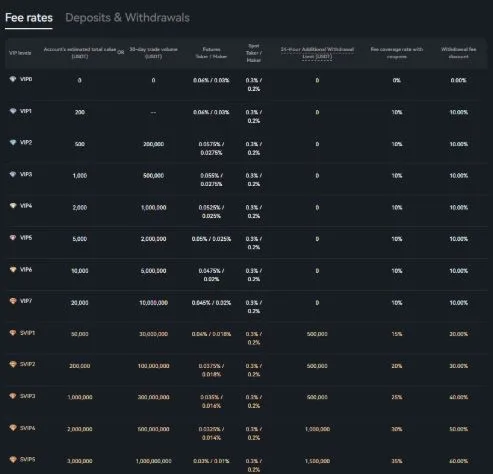How Bus Fleet Management Software Enhances Passenger Safety and Efficiency
Managing a fleet of buses presents a unique set of challenges. From coordinating intricate schedules and routes to ensuring every vehicle is safe and well-maintained, the logistical complexity can be immense. For any organization that relies on bus transportation, whether for public transit, school districts, or private charters, efficiency and reliability are paramount.
This is where bus fleet management software comes in. This powerful technology provides a centralized platform to oversee every aspect of your fleet’s operations. By integrating key functions like vehicle tracking, maintenance scheduling, and driver management, this software helps streamline processes, reduce operational costs, and enhance overall safety. It transforms complex data into actionable insights, allowing managers to make informed decisions that keep their fleet running smoothly and efficiently.
The Core Features of Bus Fleet Management Software
Modern bus fleet management solutions are packed with features designed to tackle the specific demands of bus operations. These tools go beyond simple vehicle tracking, offering a comprehensive suite to optimize your entire workflow.
Real-Time GPS Tracking and Route Optimization
One of the most fundamental features is the ability to monitor your entire fleet in real-time. GPS tracking provides the exact location of every bus at any given moment, which is crucial for schedule adherence and passenger communication. Managers can see if a bus is on time, delayed, or has deviated from its planned route.
This tracking data also fuels powerful route optimization tools. The software can analyze traffic patterns, road closures, and other variables to suggest the most efficient routes. This not only helps in saving fuel but also ensures that passengers reach their destinations on time. For school bus fleets, this feature provides parents with peace of mind, knowing they can track their child’s journey to and from school.
Proactive Maintenance and Vehicle Health
Keeping buses in peak condition is non-negotiable. Breakdowns are not just costly; they disrupt schedules and can compromise passenger safety. Bus fleet management software automates and simplifies the maintenance process.
The system tracks vehicle mileage, engine hours, and diagnostic trouble codes (DTCs) to schedule preventive maintenance. Instead of relying on manual logs, you receive automated alerts when a vehicle is due for an oil change, tire rotation, or inspection. This proactive approach helps identify and address potential issues before they escalate into major repairs, extending the lifespan of your vehicles and reducing unexpected downtime.
Driver Behavior and Safety Management
A safe fleet starts with safe drivers. Management software often includes tools to monitor and improve driver behavior. By collecting data on factors like speeding, harsh braking, rapid acceleration, and idling times, managers can get a clear picture of how their vehicles are being operated.
This information can be used to create targeted training programs for drivers who may need additional coaching. Many systems provide scorecards and reports that foster a culture of safety and accountability. Recognizing and rewarding safe driving practices can also boost morale and encourage consistent performance across the entire team of drivers.
Fuel Management and Cost Reduction
Fuel is one of the largest operating expenses for any bus fleet. Effective management software provides detailed insights into fuel consumption, helping you identify opportunities for savings. By tracking fuel usage per vehicle and monitoring driver behaviors like excessive idling, you can pinpoint inefficiencies and implement strategies to reduce costs.
Route optimization also plays a significant role in fuel economy. Ensuring buses take the shortest, most efficient paths minimizes unnecessary mileage and, consequently, reduces fuel expenditure.
The Advantages of Implementing a Fleet Management System
Integrating a dedicated software solution for your bus fleet offers a host of benefits that directly impact your bottom line and operational excellence.
Enhanced Safety and Compliance
Safety is the top priority for any transportation service. Bus fleet management software helps ensure that your fleet meets and exceeds safety standards. Automated maintenance schedules guarantee that vehicles are always in safe, working order. Furthermore, monitoring driver behavior helps reduce the risk of accidents caused by unsafe driving practices. The software also simplifies compliance with government regulations by centralizing records for vehicle inspections, driver hours, and other mandatory documentation.
Increased Operational Efficiency
By automating many of the manual tasks associated with fleet management, the software frees up your team to focus on more strategic initiatives. From routing and dispatching to maintenance and reporting, automation reduces the potential for human error and ensures processes are completed consistently and on time. Real-time data allows for quicker decision-making, enabling dispatchers to respond instantly to unexpected events like traffic jams or vehicle breakdowns.
Significant Cost Savings
The financial benefits of using bus fleet management software are substantial. Optimized routes and reduced idling lead to lower fuel consumption. Proactive maintenance prevents costly emergency repairs and extends the life of your vehicles. Better oversight of your assets can also lead to lower insurance premiums. By providing a clear view of your operational costs, the software empowers you to make data-driven decisions that improve financial performance.
Improved Passenger Experience
For public transit and charter services, passenger satisfaction is key to success. Bus fleet management software helps you provide a more reliable and transparent service. Real-time tracking allows you to provide accurate arrival and departure times, reducing passenger uncertainty. Ensuring buses are well-maintained and driven safely contributes to a more comfortable and secure journey for everyone on board.
Getting Started with Bus Fleet Management
Adopting a new technology solution can seem daunting, but the process is more straightforward than ever. Start by identifying the specific challenges your fleet faces. Are you struggling with high fuel costs? Do you experience frequent, unexpected vehicle breakdowns? Are you looking to improve schedule adherence?
Once you understand your needs, you can evaluate different software options to find one that offers the right features for your organization. Many providers offer demonstrations and trial periods, allowing you to see the software in action before making a commitment. A successful implementation involves training your team and integrating the system into your daily workflows to ensure you get the most value from your investment.
Paving the Road for a Smarter Fleet
Bus fleet management software is an indispensable tool for modern transportation services. It provides the visibility, control, and data-driven insights needed to run a safe, efficient, and cost-effective operation. By leveraging this technology, organizations can overcome the daily complexities of managing a bus fleet and focus on delivering a superior service to their passengers. Investing in a robust management system is an investment in the future success and sustainability of your fleet.





